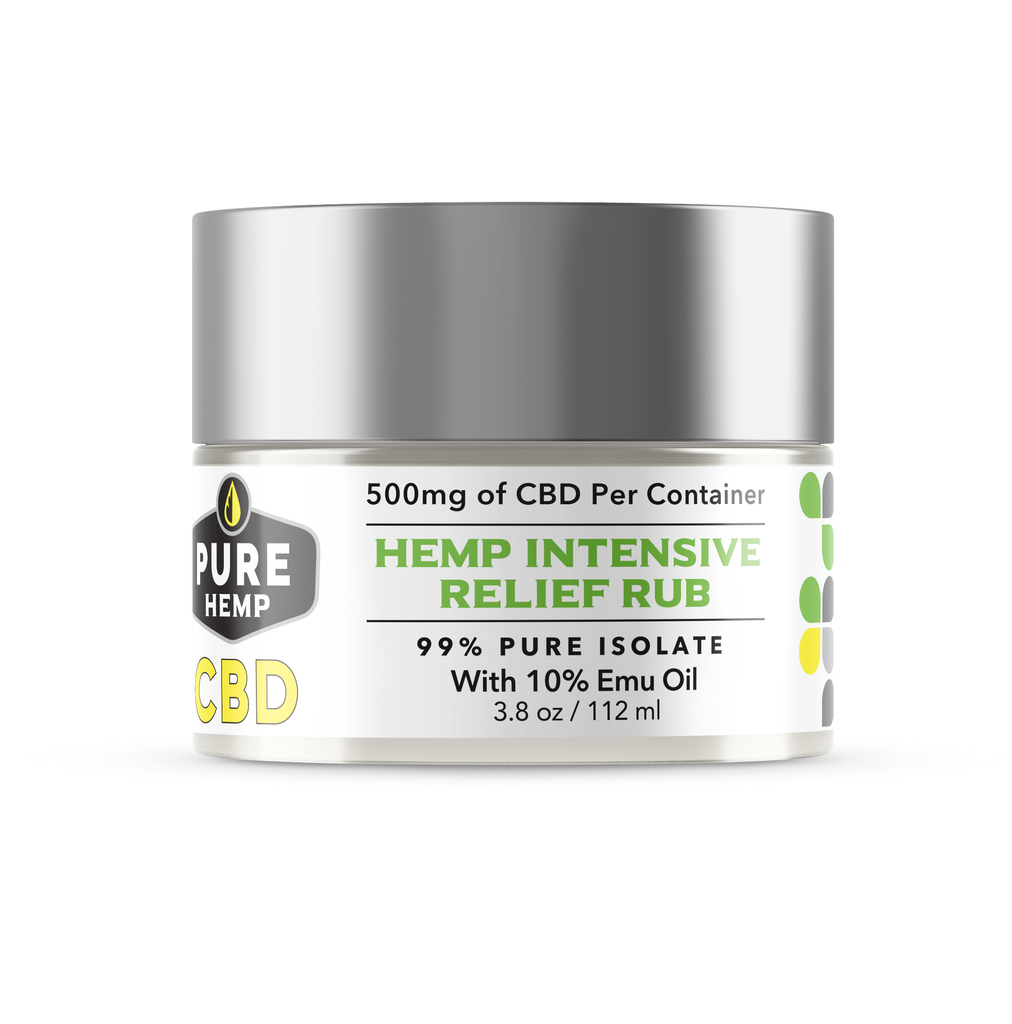
Many people are now beginning to realize the medical benefits of CBD oils and Charlotte Figi's mother's efforts to legalize it. The non-profit organization of her mother and the petition to legalize cannabis have been well received. But is CBD oil really an epilepsy cure-all? Let's take an in-depth look at Charlotte Figi’s story and the history of CBD oil.
Figi's Story
Charlotte Figi may have been mentioned to you as the little girl responsible for changing the laws regarding medical marijuana in America. Her story is one the most inspirational stories about medical marijuana use in recent times. Modern pharmaceuticals have been able to cure many previously incurable illnesses, but they are still not enough to alleviate the suffering of some of our most vulnerable citizens. Despite the many benefits of medical marijuana, it is not enough to treat some of the most severe illnesses.
A group or movement can be devastated by the loss of an icon. An icon is the best thing for a movement or group. Charlotte Figi’s story touched hearts of friends and foes. It is impossible for anyone to imitate Charlotte Figi. Charlotte Figi's story is a powerful and moving tale. Charlotte Figi's story will always be remembered in the hearts and minds of those who knew her.

CBD oil by Figi
The Stanley Brothers, Colorado's cultivators of medical cannabis, are the ones behind Charlotte Figi CBD oil. They are well-known for their work in treating epilepsy, Parkinson's and other conditions. However, the Stanley Brothers had reservations about recommending CBD oil to a young woman. Realm of Caring is a non-profit that supports research and development into CBD's potential health benefits.
Dravet syndrome is a life-threatening, chronic disorder that can cause seizures in children and adults. Charlotte Figi found relief from her condition with CBD oil. CBD oil, a non-psychoactive compound that is powerful in anticonvulsant properties, has been used for years to treat epilepsy patients. It was nearly impossible for her life to be normal. She experienced hundreds of seizures every week.
Non-profit organisation started by Figi’s mom
Paige Figi created the nonprofit Realm of Caring to honor her daughter on April 5. The group is dedicated to medical cannabis research and education. The organization initially attributed Charlotte's death to complications of COVID-19. It has since been corrected. An earlier report incorrectly stated that Charlotte died from cardiac arrest due to COVID-19 infection.
Charlotte Figi died in December 2013. Since then, her non-profit organization has worked to educate the public on the health benefits of marijuana oil. Charlotte's Web oil was inspired by Charlotte Figi's personal story. This inspired many families to travel from all parts of the country to Colorado for treatment. Charlotte's recovery drew other families who suffered from similar ailments to move to the state. Paige Figi thanked Charlotte recently for helping other families find a cure.

Figi's mother filed a petition to legalize cannabis
Charlotte Figi suffered 300 seizures a month when she was only five years of age. She was in a wheelchair and required a feeding tube. She also suffered multiple heart attacks. Her family tried many prescription medications but nothing worked. Charlotte's parents finally discovered that CBD, also called CBD, could help their daughter. The Figi's began researching CBD for its medical benefits. They found out that CBD was being used internationally to treat epilepsy. Charlotte's parents joined the cause by creating a petition for legalization.
Many people are praising Charlotte's petition to the Figi Family as a way of honoring her and all those who helped her. Charlotte's mother used CBD hemp oil to help her daughter with seizures. Paige Figi, her mother, shared via Facebook that her family was suffering from a severe illness. However she didn't specify the coronavirus. Multiple news outlets obtained the COVID-19 information via the Realm of Caring Facebook Page. But, the group later deleted it.
FAQ
Is CBD a good investment?
The demand for hemp-based goods continues to rise as more people realize their benefits. The market for hemp-based products could reach $1 billion by 2022, according to estimates.
It is also expected that the market will continue to grow at an annual rate exceeding 20% through 2020 when it reaches $2.5 Billion.
Hemp oil can be found in many beauty and health products, including lotions, shampoos and lip balms, moisturizers and body butters.
Many companies also make CBD-infused snacks, pet food, treats, and other food products.
CBD is legal in all 50 states. However, this could change very soon. More research into CBD's potential uses will be done, which will make it easier for businesses and law enforcement to do business legally.
With all these factors in mind it is clear that CBD investing can prove to be a lucrative venture.
What are some common mistakes that companies make when they enter the US cannabinoid market?
Not understanding the regulations for cannabis products is a first mistake. This could result in you needing to alter your product formulation.
The second is not knowing how you should label your product. You must know whether your product contains CBD, THC, or both.
The third thing you need to do is understand how to package your product properly. If your product does contain THC, then you must ensure that it is packaged in child-resistant containers.
If your product does not contain THC, then you should still follow all packaging laws because there are many states where cannabidiol (CBD) is legal.
You should also keep track of recalls that may have occurred with your products. It is crucial to notify customers as soon possible if you have a problem with your product.
Which countries produce the highest quality CBD?
The United States produces most CBD products.
But Canada, Australia, New Zealand, and Israel are also producing high-quality CBD products.
Is CBD growing?
Yes! This growth is expected to continue as legalization expands across North America. This year alone, Canada legalized recreational cannabis use, while several states have passed medical marijuana laws.
As more states adopt legislation that allows medicinal marijuana access, this trend is likely to continue at least for the next decade.
Economically, legalizing marijuana makes economic sense. As well as providing a lucrative alternative market for farmers, there are many other benefits to legalizing pot.
It could be used to reduce crime rates and the availability illegal drugs. It could also help governments generate tax revenue.
As legal marijuana is more popular, people may be less likely to smoke. This would result in fewer hangovers, and lower healthcare costs.
Chronic pain sufferers may find that marijuana can actually improve their quality of life. Many believe that THC, which is the active ingredient of marijuana, can help relieve muscle spasms and nausea from chemotherapy.
Finally, marijuana might become a valuable tool for treating mental illnesses such as depression and anxiety. Some studies even suggest that marijuana may be able to treat schizophrenia.
Even though the CBD industry looks promising, there are still many challenges to be overcome.
Statistics
- HR −16 mmHg; 95% CI −26, −6; I2 = 92%) (ncbi.nlm.nih.gov)
- While the primary injury may not be treatable, interventions that attenuate secondary sequelae are likely to be of benefit [203].Only one study (ncbi.nlm.nih.gov)
- The use of these products is likely to become even more widespread if the World Health Organization's recommendation that CBD no longer is scheduled in the international drug control conventions is adopted by the United Nations member states [201]. (ncbi.nlm.nih.gov)
- The inhibition of FAAH is predicted to lead to an increase in brain and plasma concentrations of AEA, which acts as a partial agonist at CB1R and CB2R, thereby increasing endocannabinoid tone [92, 110]. (ncbi.nlm.nih.gov)
- A recent systematic review of human trials also reported that individuals with epilepsy receiving CBD (5–20 mg·kg−1·day−1) were more likely to experience decreased appetite than those receiving placebo (i.e., ~20 vs. 5% of patients) (ncbi.nlm.nih.gov)
External Links
How To
What are the most common problems in the CBD industry?
The market for CBD products is expanding at an astounding rate. There are many hurdles businesses face when trying to enter the CBD market. These include a lack of consumer awareness, high cost of entry, limited access to capital, and regulatory uncertainty.
Many consumers don't understand what CBD is and how it works. This means that they cannot make informed decisions about whether or not to buy CBD products.
CBD companies heavily rely on word-of-mouth advertising. This is expensive as they must pay advertising costs and to hire staff to market their brand.
Another issue facing new entrants into the CBD industry is the high cost of production. The raw materials needed to create CBD products are quite expensive. CBD oil can only then be produced if the hemp has been grown in a specific environment.
Grow enough hemp to produce CBD oil requires approximately $1,000 per annum. Many small farmers can't afford to begin.
Another challenge new entrants face in the CBD market is the lack of access to capital. Banks are often discouraged from helping people start businesses because of the stigma that surrounds the industry.
Last but not least, there is regulatory uncertainty regarding the sale and distribution of CBD products. There are no guidelines for how CBD products should market.
Some states have passed legislation restricting the sale of CBD products, but this has yet to become national policy.
So far, only two states - Maine and Nevada - have legalized recreational marijuana.
However, some states like Massachusetts and Michigan are considering similar measures.
These changes could increase competition among CBD manufacturers.
Many entrepreneurs prefer to work at home over starting a business.